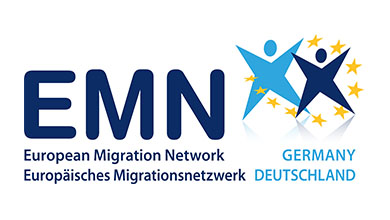Misuse of the right to family reunification -
Marriages of convenience and false declarations of parenthood
,
 Source: BAMF
Source: BAMF
The subsequent immigration of family members sets especial challenges within the European Union (EU) with regard to the management of migration-related events. The quantitative volume by itself makes family reunification the most important channel for migration to the EU.
Unlike immigration for employment purposes, the political management of family reunification poses difficulties since the legal core of family reunification belongs to the recognised fundamental rights. Accordingly, control of this migration channel is to ensure that only actual family members are able to benefit from this right and the institution of the family does not change from being the purpose of migration to becoming its means.
The starting point of family reunification in Germany is formed by the nuclear family, consisting of two parents and their minor-aged children in a social-legal definition. The social definition of the family is both a possibility and a challenge when it comes to preventing the misuse of family reunification.
Family reunification is monitored in a two-stage procedure: If the relationship is not to be established until the persons reach Germany, the registry offices carry out the first verification, whilst in the case of entry into the country for the purpose of family reunification an initial check is carried out by the German missions abroad. A second, more intensive check is subsequently carried out by the foreigners authorities when applying for a residence title.
Since the available statistical information is only authoritative to a restricted degree, it is not possible to make any reliable statements on the extent of the misuse of family reunification or on necessary countermeasures.
The study was drawn up in 2012 as a German contribution for the European Migration Network.
Dr. Andreas Müller

